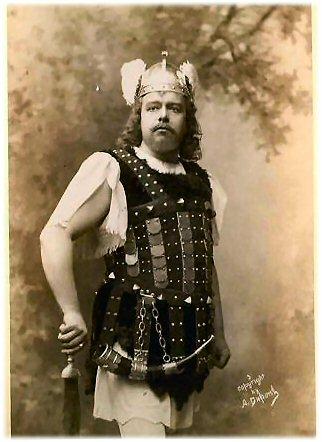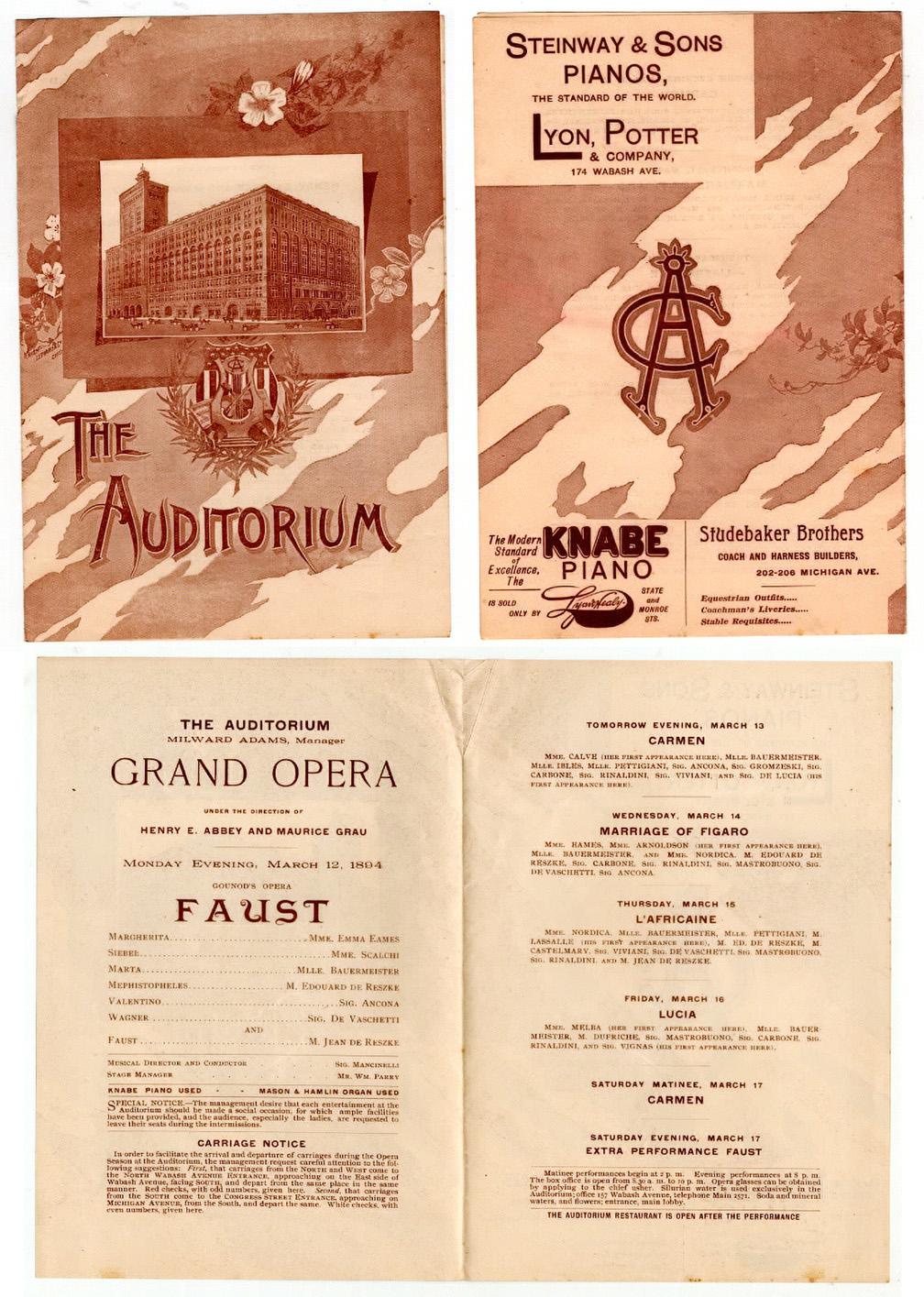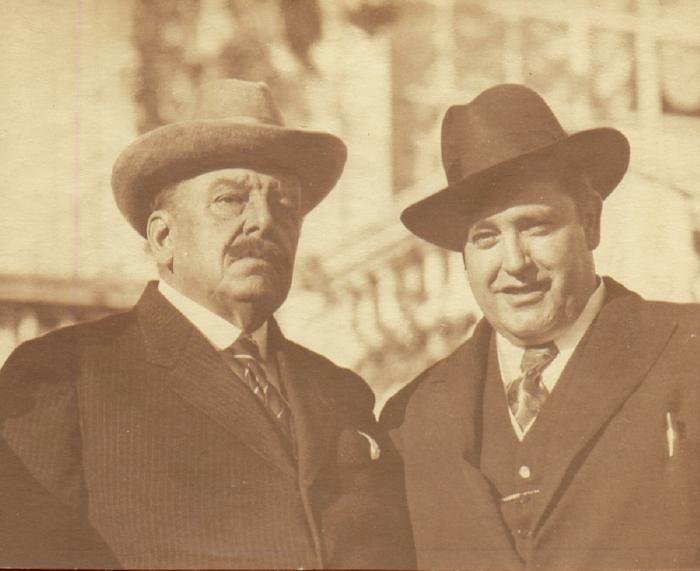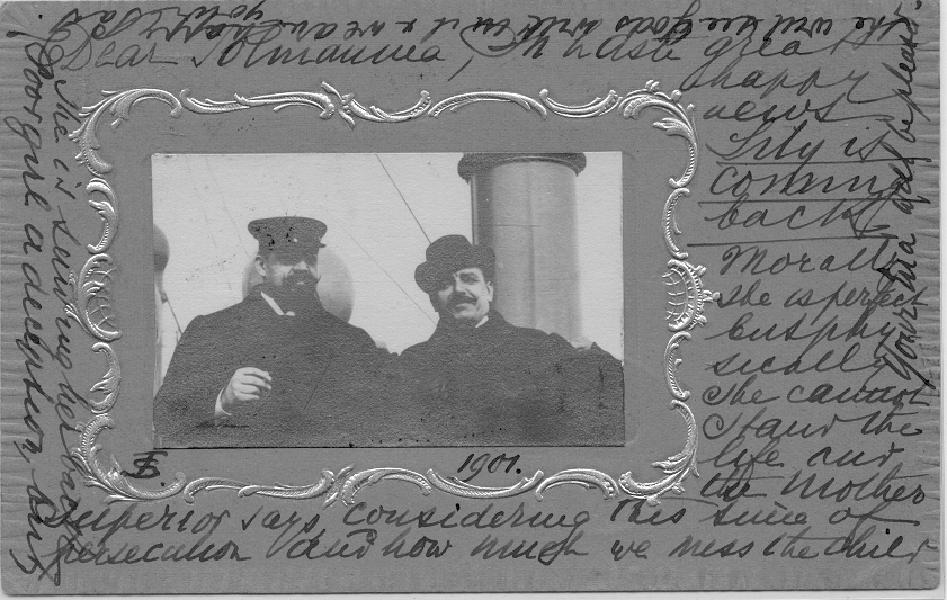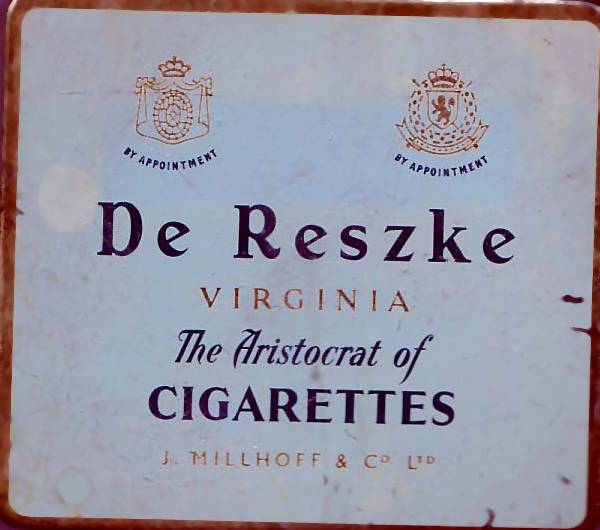Jean de Reszke
14 January 1850 Warsaw – 3 April 1925 Nice
Born Jan Reszke into an upper-class family, he became a professional singer like his brother Edward (Édouard, basso) and his
sister Józefina (Joséphine, soprano) – all three gaining enormous fame, Jean being not only the most famous of the three,
but the most famous tenor of his, and perhaps of all time.
He studied voice in Warsaw with Ciaffei and in Milano with Antonio Cotogni, making his debut at the Fenice in Venice in 1874 – as
Alphonse in La favorite, hence as a baritone. As such, he sang in other Italian cities, in Paris and in London, before restudying with
as a tenor with Giovanni Sbriglia in Paris; it had been Édouard who had recognized that Jean was actually a tenor. His 1879
tenor debut (as Robert le diable in Madrid) was no success, though, and for the next five years, he would only sing in concert.
Jules Massenet and Victor Maurel convinced him to come back to the stage; his success as Jean in Hérodiade (Paris,
Théâtre Italien, 1884) was overwhelming, and the following year, on 30 November 1885, he created the title role in the
world premiere of Le Cid at the Opéra; all of a sudden, he was the most famous tenor in the world. He stayed at the Opéra
until 1889; he toured many theaters in France and throughout Europe, with a focus on Covent Garden in London, where he appeared
regularly from 1888 to 1900. From 1890, he was a member of the Metropolitan Opera in New York City for most seasons until 1901, more
and more specializing on Wagner, which he sang in German in New York: Tristan, Stolzin, Lohengrin, Siegmund, Siegfried. After bidding
farewell to London and New York, he quickly retired; his role debut as Canio at the Paris Opéra (1902) was his last performance.
Next, he became a highly successful voice teacher, first in Paris, then in Nice. Among his students were Richard Bonelli, Arthur Endrèze,
Mme. Charles Cahier, Carmen Melis, Leo Slezak, Johannes Sembach, Maggie Teyte, Bidù Sayão...
What is hardly acceptable for record collectors is that Jean de Rezke made two studio recordings – and that they are definitely
lost. It was on 22 April 1905, during the legendarily catastrophic first Fonotipia recording sessions in Paris: the sound engineer
being unable to use the new recording device properly, most of the matrices could not be used and had to be destroyed, the two made by
de Reszke were of course among them (xxxPh 568: Roméo et Juliette: Salut, tombeau; xxxPh 569: Le Cid: Ô souverain). Many
of the singers came to the studio once more and repeated their recordings. De Reszke didn't. And no test pressings.
That is already clear since the 1930s, when Horst Wahl was a recording engineer for Odeon (the mother company of
Fonotipia). Wahl was one of Germany's most important vocal collectors (at the end of his long life, his collection comprised some
89,000 discs!), and he, too, was of course unable to accept that the two sole recordings by the most famous of all tenors should be lost
forever. He checked in the company's archives, and he checked thoroughly. The result was as unambiguous as it was devastating: de
Reszke's matrices had been immediately destroyed.
Obviously, also a Bettini cylinder of de Reszke's voice had once been made (as confirmed by Bettini himself); but that one, too, is
lost: blown up in WWI by German bombs, together with an entire Bettini warehouse in France.
Everything else about these or alleged other de Reszke studio recordings is pure mystification, although at such mystification, there
have been quite a few attempts. A bizarre example that seems like from a Dan Brown novel is a cylinder allegedly found in the vaults of
Wagner's Villa Wahnfried in Bayreuth, on which Jean de Reszke allegedly sings Salut, demeure. Well, that cylinder actually exists (I don't
know whether it has ever been in Bayreuth, but doubt it), and it's certainly Salut, demeure, but definitely not de Reszke, although
that has even been claimed on the French radio – de Reszke would never have sung a French aria in Italian, and what we can gather
from de Reszke's live recordings, his vocality must have been much different from this Salut. (Listen to a snippet from that French radio program, complete
with the High C from Salut, in RA format.) It would be interesting to know who the – obviously unnamed – singer is,
the High C is actually not bad!
So we are left, as far as de Reszke's singing with a few snippets from Met live recordings on Mapleson cylinders; unfortunately, their
technical quality is particularly bad (the two "best" examples are posted below), and it's all but impossible to get any impression of
de Reszke's timbre. At least about his phrasing, those recordings reveal a bit, upon repeated listening.
Reference 1: Kutsch & Riemens, reference 2
Jean de Reszke with John McCormack
Jean de Reszke with Édouard who wrote the text to a close friend
de Reszke's cigarettes
| Jean de Reszke sings | L'Africaine: Ô paradis (end only) |
I wish to thank Eduardo Gabarra for having provided a cleaned up version of the IRCC issue of the Siegfried recording.
I wish to thank Georges Voisin for the High C recording.
Repertory
La favorite (Alphonse) – Venezia, Fenice, 15 January 1874
Faust (Valentin) – London, Drury Lane, 27 April 1874
Don Giovanni (Don Giovanni) – London, Drury lane, 20 July 1874
Il talismano (Richard) – Dublin, Royal, 23 September 1874
Le nozze di Figaro (Almaviva) – London, Drury lane, 22 April 1875
Les huguenots (Nevers) – London, Drury Lane, 6 May 1875
La forza del destino (Fra Melitone) – Paris, Italien, 31 October 1876
Poliuto (Severo) – Paris, Italien, 5 December 1876
Il barbiere di Siviglia (Figaro) – Paris, Italien, 19 December 1876
La traviata (Germont) – Paris, Italien, 10 March 1877
Robert le diable (Robert) – Madrid, Real, 11 November 1879
Hérodiade – Paris, Italien, 1 February 1884
Le Cid – Paris, Opéra, 30 November 1885
L'Africaine – Paris, Opéra, 3 December 1886
Aida – Paris, Opéra, 6 March 1887
Le prophè:te – Paris, Opéra, 23 May 1887
Lohengrin – London, Drury Lane, 22 June1887
Faust – London, Drury Lane, 25 June 1887
Les huguenots – London, Drury Lane, 11 July 1887
Don Giovanni (Ottavio) – Paris, Opéra, 26 October 1887
La dame de Monsoreau – Paris, Opéra, 30 Jan 1888
Un ballo in maschera – London, Covent Garden, 3 July 1888
Roméo et Juliette – Paris, Opéra, 28 November 1888
Die Meistersinger von Nürnberg – London, Covent Garden, 13 July 1889
Esmeralda – London-Covent Garden, 12 July 1890
Carmen – London, Covent Garden, 28 July 1890
Otello – London, Covent Garden, 15 July 1891
Elaine – London, Covent Garden, 5 July 1892
La damnation de Faust – Monte Carlo, Garnier, 18 February 1893
Werther – Chicago, Auditorium, 29 March 1894
Manon – New York, Metropolitan, 16 January 1895
Tristan und Isolde – New York, Metropolitan, 2 November 1895
Siegfried – New York, Metropolitan, 30 December 1896
Die Götterdämmerung – New York, Metropolitan, 24 January 1899
Pagliacci – Paris, Opéra, 14 December 1902
Reference: Clara Leiser Jean de Reszke and the great days of opera, Gerald Howe Ltd., London, 1933
I would like to thank Derek Walsh for the picture with McCormack.
I wish to thank Tom Silverbörg for the picture (cigarettes).
I wish to thank Lynn Samohel for the picture (Siegfried).
|
